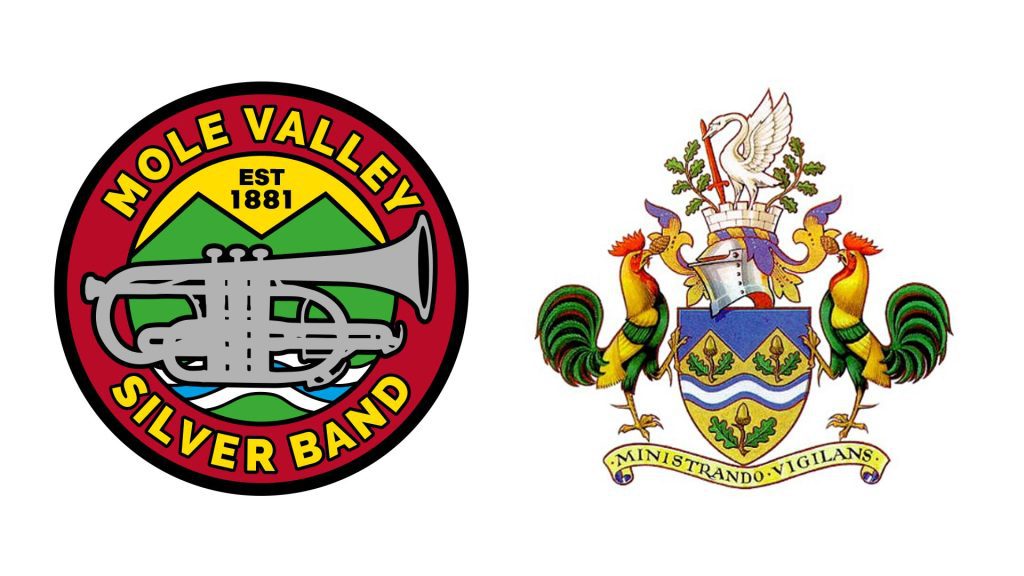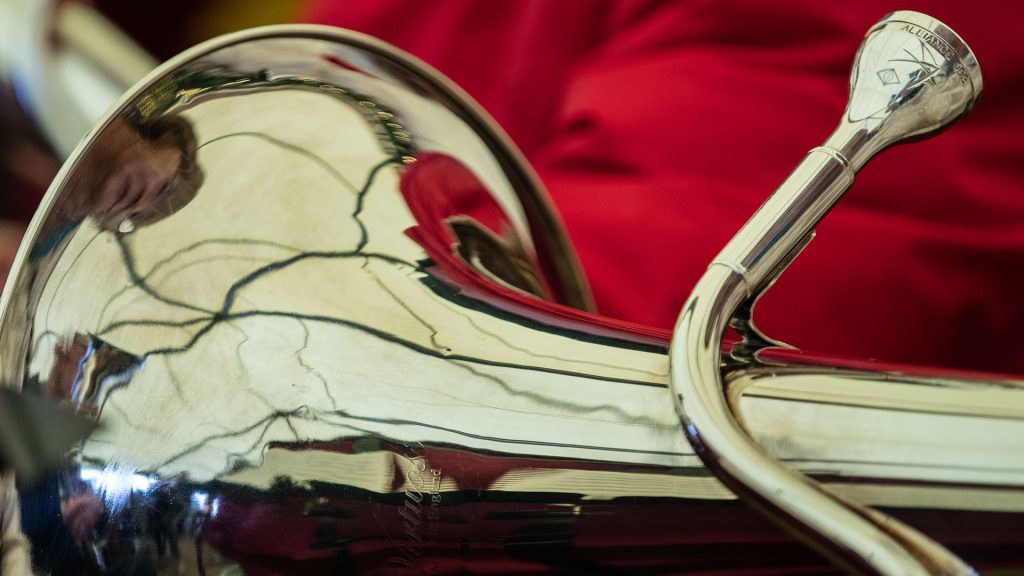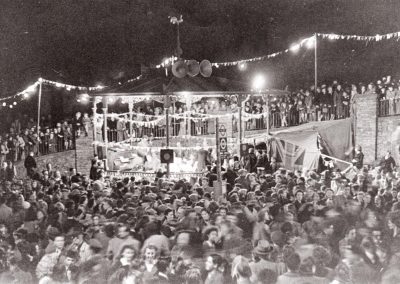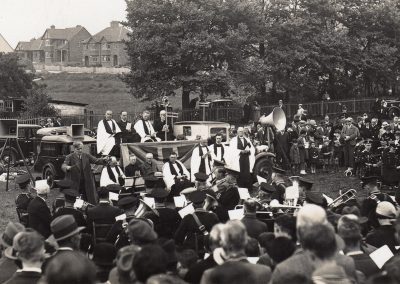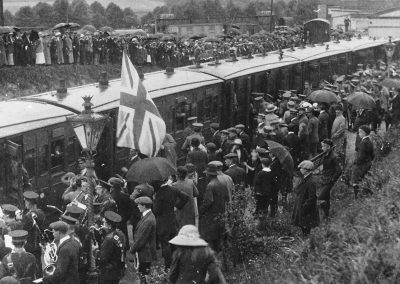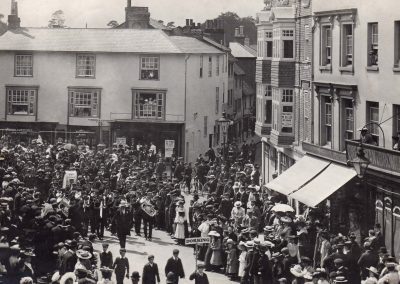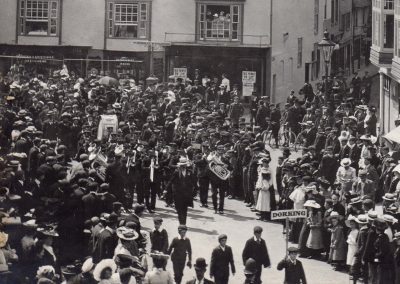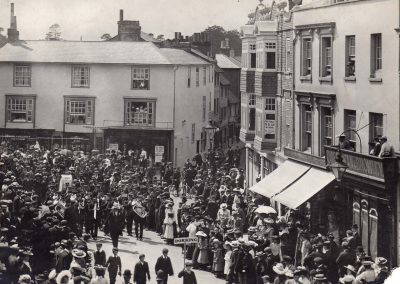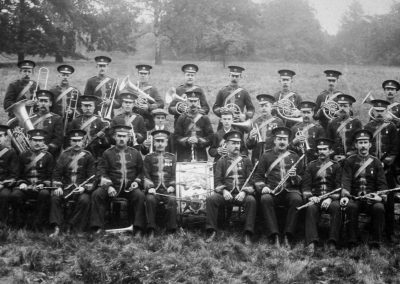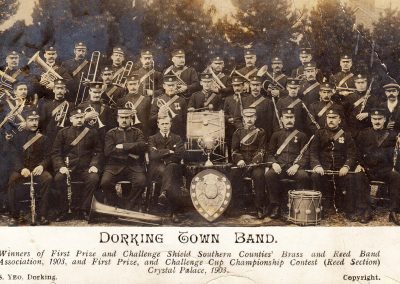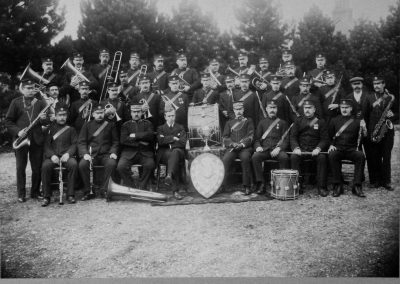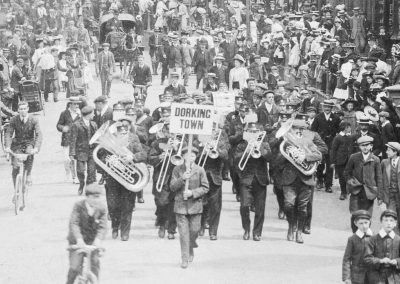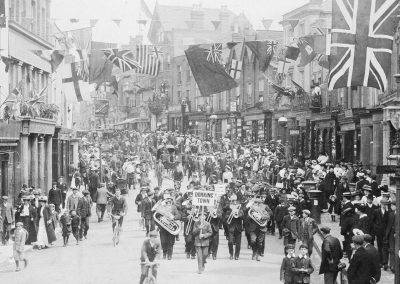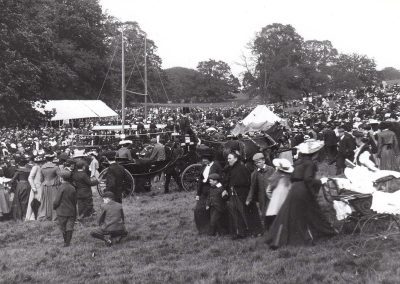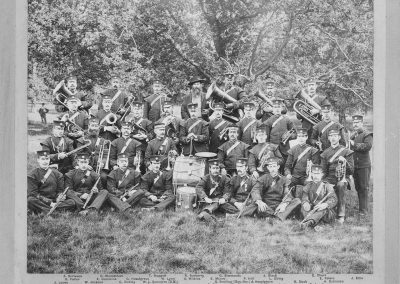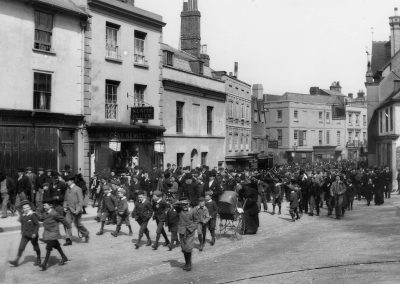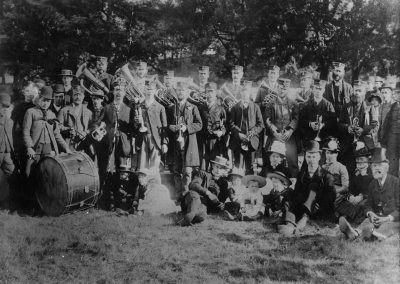History
Mole Valley Silver Band now rehearse regularly at Ashcombe Secondary School in the town of Dorking under the musical direction of Andrew Wilson.
We have recently commissioned a redesign of our branding and will be replacing our existing logo across all of our uniform and our social media accounts.
We are located in the Mole Valley and wanted our new logo to reflect our previous history and various reincarnations over the last 142 years.
Our history is interwoven and rooted within the following areas of Mole Valley: Leatherhead, Bookham, Fetcham and Dorking.
We took inspiration for our new logo from the Mole Valley Coat of Arms, the two peaks reflecting the Surrey Hills; Box Hill and Leith Hill.
The hill figuration also suggests the letter ‘M’ with a ‘V’ in the middle. The motto, ‘Ministrando Vigilans’ (‘Vigilant in our serving’) which gives the initials MV, is a derivation of those of the former Dorking & Leatherhead Councils: ‘Virtute et Vigilantia’ (‘By Courage and Vigilance’) and ‘Service links all’.
The blue and white wave represents the River Mole, and our silver cornet represents how proud we are of our brass branding heritage.
The 1974 local government reorganisation merged Dorking and Leatherhead urban districts with two other rural districts to create Mole Valley District Council. So in 1974 the Mole Valley Silver Band merged the Bookham and dormant Leatherhead bands. The band capped that year with a move to the Reading Room in Fetcham, its practice home for almost the next 50 years.
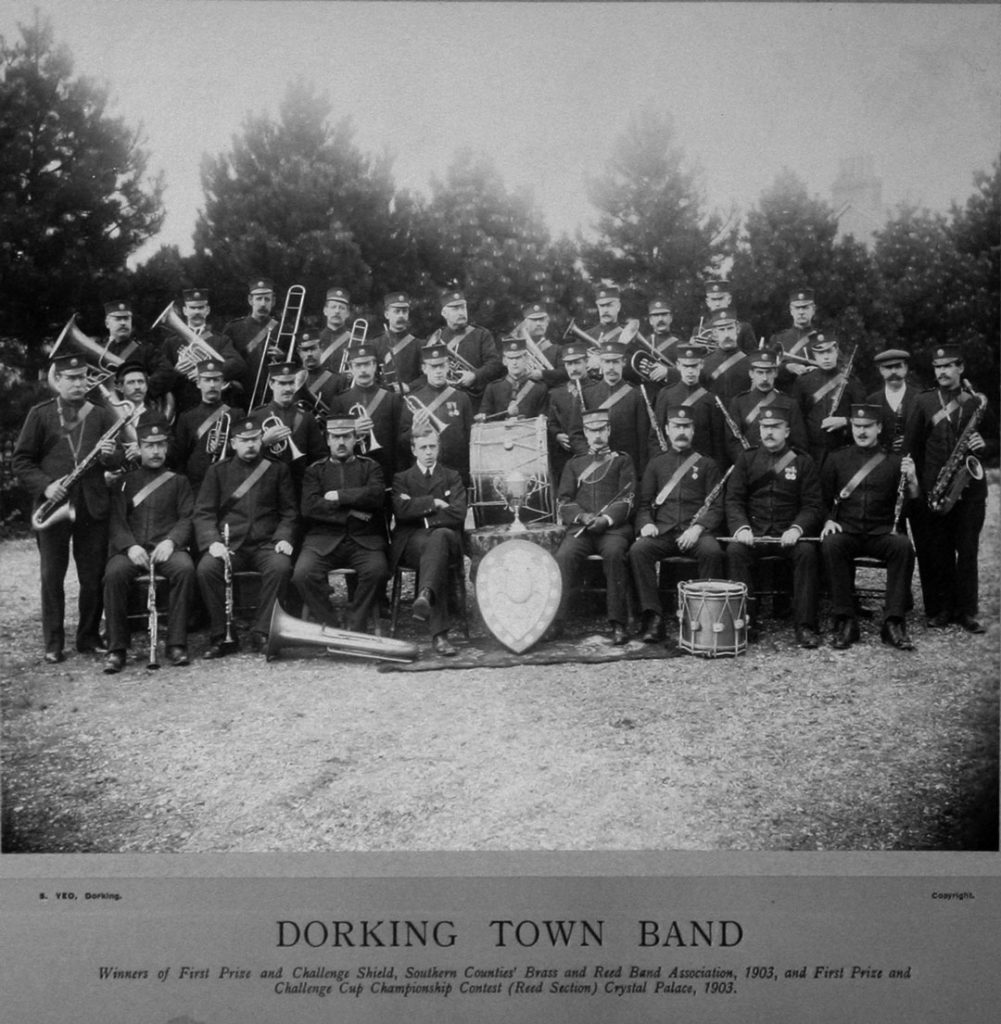
Move forward to December 1972 and the arrival of Bookham Community Association musical dynamo Tony Bradford, who restarted Bookham’s silver band as part of a series of local ‘musical workshops’ before moving to Canada only a year later. In 1973 the Bookham Silver Band played at a June “summer review” in the village and on Village Day in September. The year after, Village Day moved to June, as now, and the band has played at it most years since.
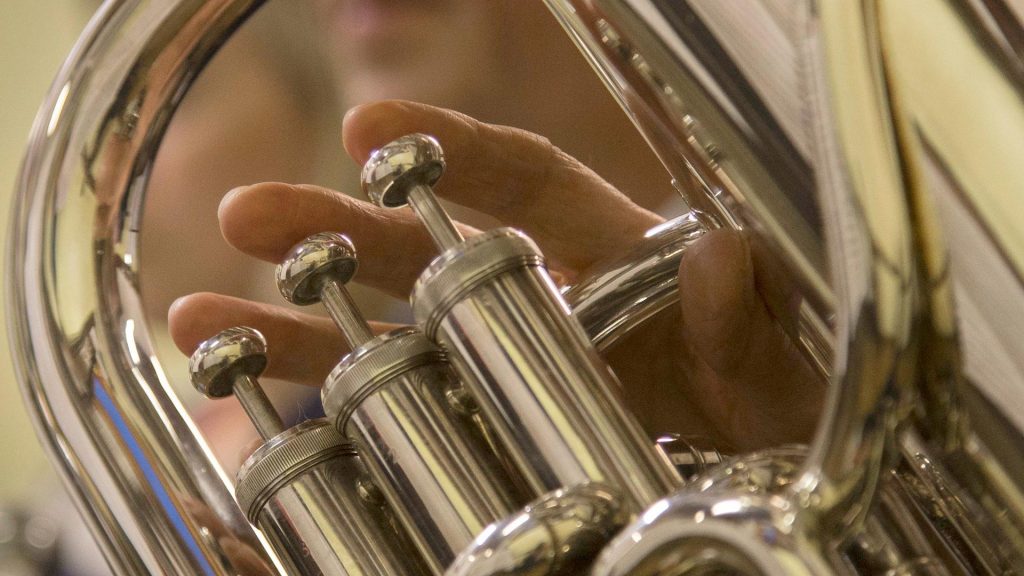
By 1955 Bookham had the instruments but, with no players and, apparently, nowhere to practise, it folded. In that year too Dorking, a top-class competition band, disappeared, as does Leatherhead. By 1968, the Bookham Village Day music was provided by the North Downs Silver Band, today’s Epsom and Ewell Silver Band.
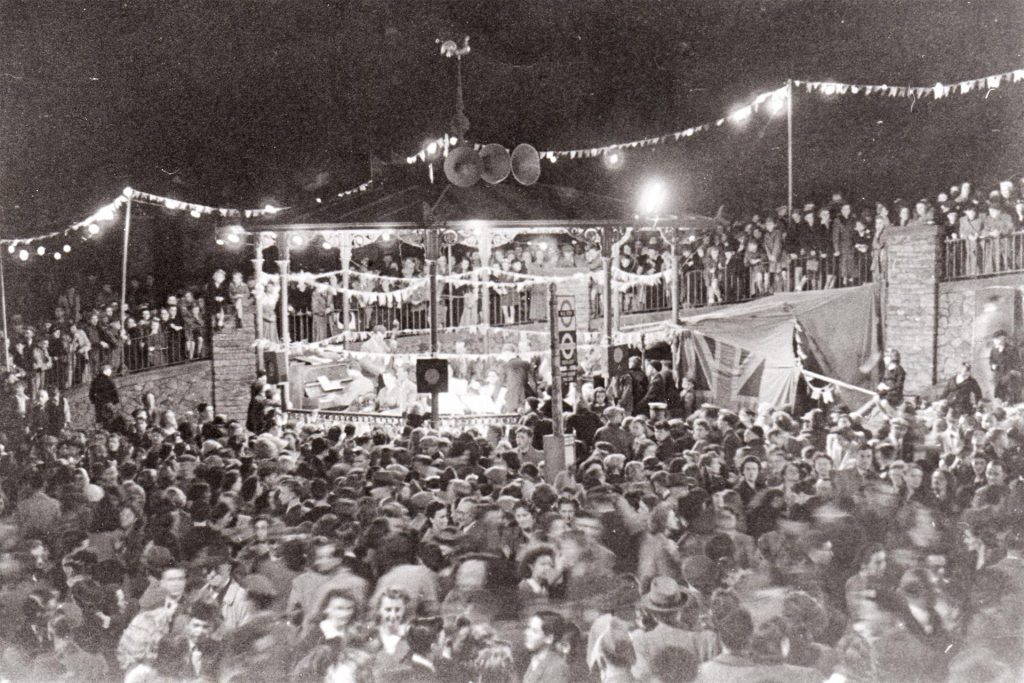
In 1947 the Leatherhead and Bookham bands merged as the Bookham District Silver Band. And disappeared. The Dorking band was revived in 1950 with an appeal for funds for instruments. But the band for September 1952’s Bookham Village Day was a merged “Leatherhead and Dorking Silver Band”, which also vanished. An attempt was made to re-form a Bookham Band in June 1953 but, since only a bass drum, bass baritone and tenor horns had survived the war, Bookham’s elders used the coronation parade’s tin-rattling proceeds to help the Bookham Silver Band re-stock.
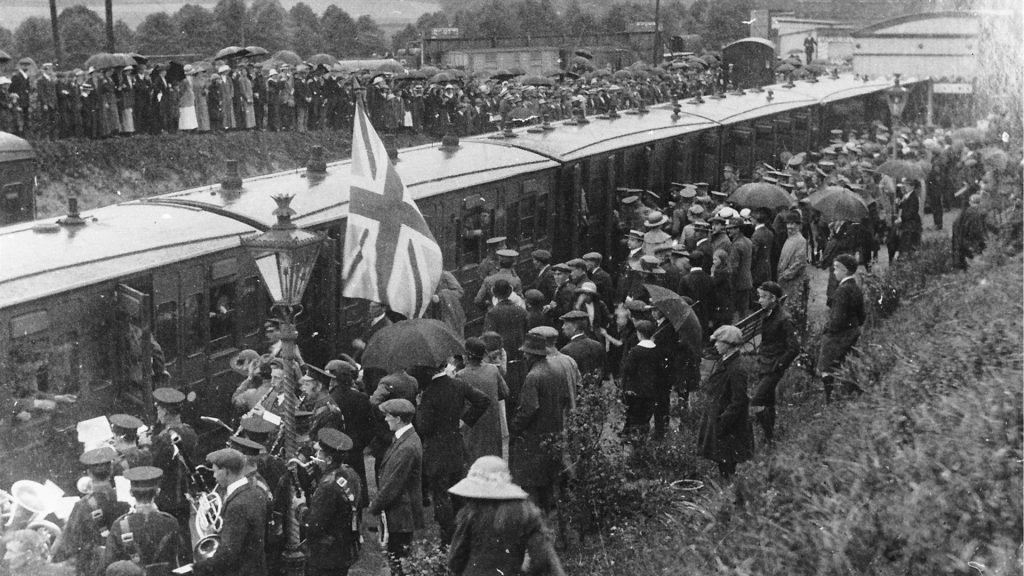
The World War ended most band activity and, though the Bookham United Silver Band folded in 1916 and a trust deed for a new “Bookham Silver Band” exists from that year, Bookham doesn’t appear in the records again until the 1930s, when a band practised in the Old Barn Hall. The Leatherhead and Dorking bands played throughout the 20s and 30s until the Second World War stopped play again.
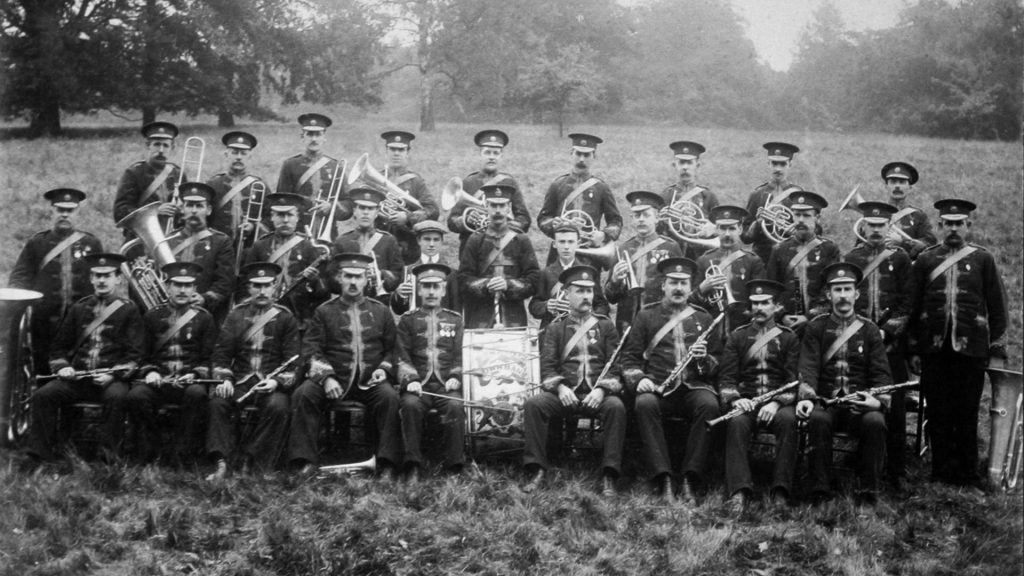
Bookham heiress and temperance campaigner Mary Chrystie bought and closed five of its pubs then bought the menfolk silver instruments to compensate — women are absent from the early photographs. They rehearsed in a tin shed she built in East Street, Bookham, grandly titled the Victoria Hall. The year she died, 1911, Leatherhead Town Band joined Bookham to form the Bookham United Silver Band, but the next year it was a “Leatherhead Town Silver Band” that played at the town’s 1912 memorial service for those lost on the Titanic.
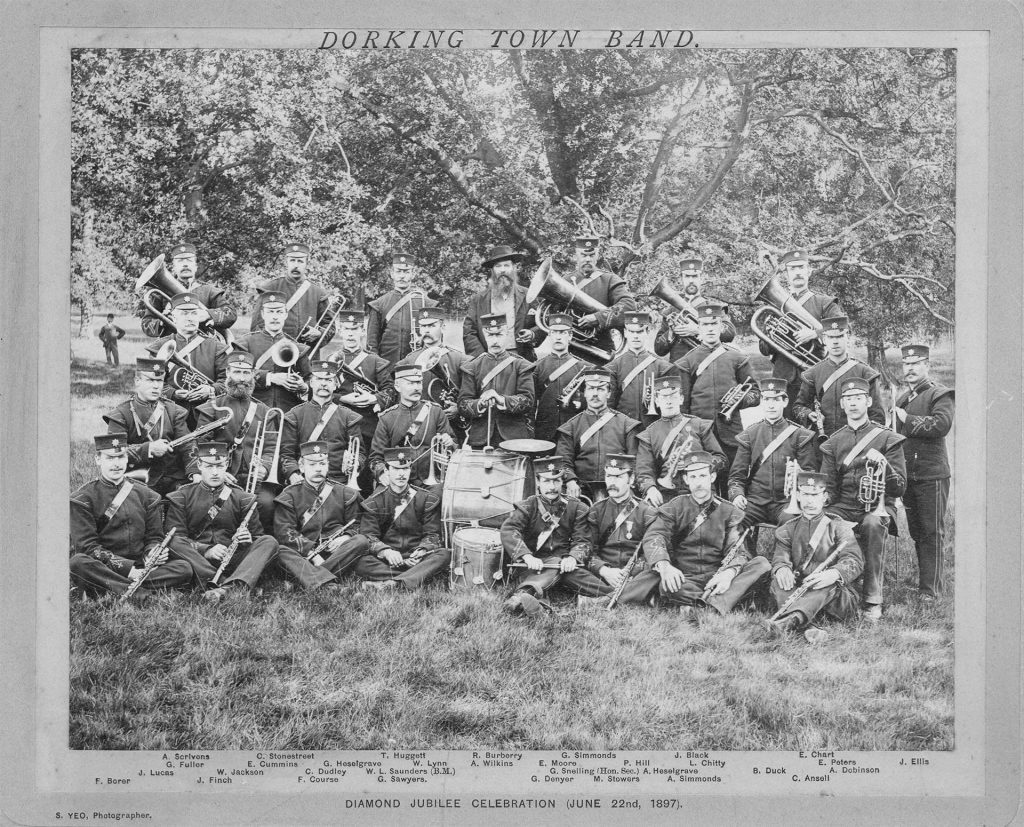
The Leatherhead Town Band played in the town every Saturday night from 1881. By the following year this, the Great Bookham Brass Band and Dorking Town band were active at horticultural shows; in celebrations of Queen Victoria’s Silver and Diamond Jubilees; at summer open air dances in the grounds of the district’s many big houses, at Christmas events and, from 1893, in Southern Counties Amateur Bands Association (SCABA) competitions, where Dorking won first prize in 1903.
